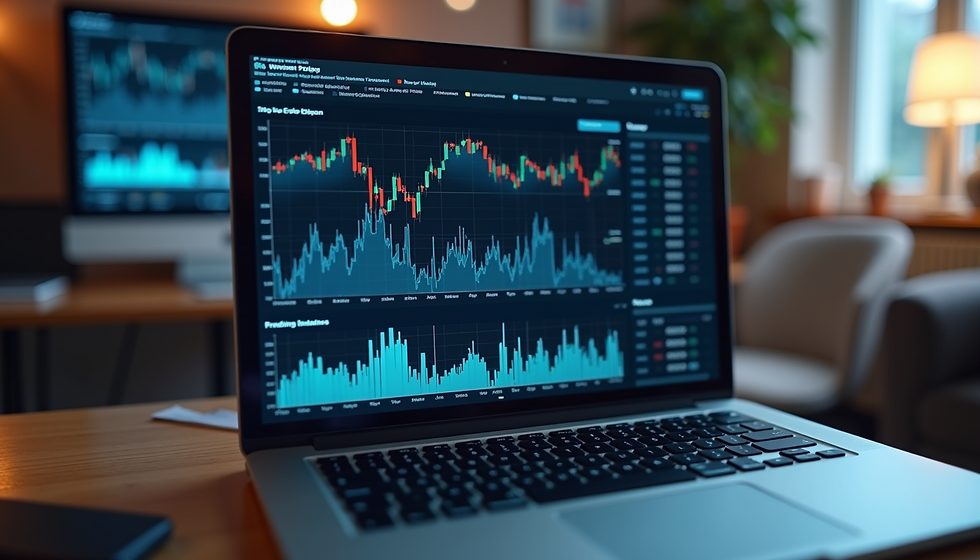WHY DIGITIZING YOUR ACCOUNTING PROCESS IS A GAME CHANGER
- Lisa Marshall
- Feb 11, 2025
- 2 min read
The world of business is changing fast, and traditional accounting processes are struggling to keep up. If your business still relies on manual spreadsheets, paper invoices, or outdated bookkeeping methods, you might be losing valuable time and money.
Going digital isn’t just a trend—it’s the future of accounting, and the time to make the switch is now.

What Does It Mean to Go Digital in Accounting?
Digitizing accounting means moving away from manual processes and adopting cloud-based software and automation tools to handle financial tasks. This includes:
✅ Automating bookkeeping tasks
No more manual data entry. Cloud accounting software like QuickBooks Online, Xero, or FreshBooks can automatically categorize transactions, generate reports, and sync bank feeds.
✅ Managing invoices and payments online
Instead of tracking paper invoices, businesses can send, receive, and process payments digitally using tools like ARKA, Dext, or Hubdoc.
✅ Real-time financial insights
Cloud-based accounting provides up-to-date financial data anytime, anywhere, making it easier to track cash flow and make informed business decisions.
✅ Seamless tax compliance
Automated record-keeping simplifies tax filing, reducing the risk of errors and penalties during audits.
Why Now is the Perfect Time to Go Digital
📌 The Business World is Moving Faster Than Ever
With supply chains evolving and customers expecting instant transactions, businesses need to keep up. Manual accounting processes are slow and prone to errors, while digital tools offer real-time tracking and automation.
📌 Remote Work and Flexibility are the New Normal
Cloud-based accounting allows business owners and accountants to access financial records from anywhere. Whether you’re in the office, at home, or traveling, your financial data is always at your fingertips.
📌 Regulations and Compliance are Getting Stricter
Governments worldwide are enforcing stricter tax and financial compliance rules. Digital bookkeeping ensures proper documentation, making it easier to comply with tax laws and audits.
📌 Scalability and Growth Demand Automation
As your business grows, financial processes become more complex. Automating payroll, invoicing, and expense tracking saves time and ensures accuracy, allowing you to focus on expansion instead of paperwork.
How to Make the Switch to Digital Accounting
Making the transition doesn’t have to be overwhelming. Here’s a step-by-step approach:
1️⃣ Evaluate Your Current Accounting Process
Identify inefficiencies in your workflow. Are you manually entering expenses? Struggling with invoice tracking?
2️⃣ Choose the Right Digital Tools
There’s no one-size-fits-all solution. Whether it’s QuickBooks, Xero, or ARKA, selecting the right accounting software depends on your business needs.
3️⃣ Integrate and Automate
Set up bank feeds, automate invoicing, and streamline expense tracking to reduce manual work.
4️⃣ Train Your Team
Ensure that employees understand how to use new accounting tools effectively. Proper training prevents errors and maximizes efficiency.
5️⃣ Get Expert Support
Partner with a professional bookkeeper or accountant to guide you through the transition and provide ongoing support.
Future-Proof Your Business with Digital Accounting
Going digital isn’t just about saving time—it’s about setting your business up for long-term success. With automated processes, real-time financial insights, and improved compliance, digital accounting is the key to staying competitive in 2025 and beyond.
Ready to make the switch? Let’s talk about how we can help you digitize your accounting processes today!




Comments